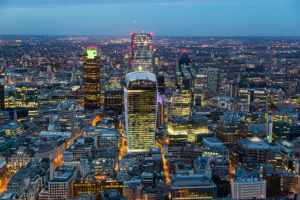
The City of London, arguably the heart and headquarters of a international network of tax havens
Africa loses at least $50 billion a year — and probably much, much more than that — perfectly lawfully. About 60% of this loss is from aggressive tax avoidance by multinational corporations, which organize their accounts so that they make their profits in tax havens, where they pay little or no tax. Much of the remainder is from organized crime with a smaller amount from corruption. This was the headline finding of the High Level Panel on Illicit Financial Flows from Africa, headed by former South African President Thabo Mbeki, a year ago.
This amount is the same or smaller than international development assistance ($52 billion per year) or remittances ($62 billion). If we take the accumulated stock of these illicit financial flows since 1970 and factor in the returns on this capital, Africa has provided the rest of the world with $1.7 trillion, at a conservative estimate. Africa is a capital exporter.
The rest of the world didn’t take much notice of the Mbeki Panel’s findings until the Panama Papers revealed the extent to which this is just part of a global phenomenon. The rich aren’t being taxed. The rest of us pay for everything.
The OECD calls the phenomenon ‘base erosion’ (referring to the emasculation of the tax base of the affected countries) and ‘profit shifting.’ The beneficiaries are a small fraction of the world’s wealthiest 1 percent, and the secrecy jurisdictions (aka tax havens) where they sequester their money. These locations include the City of London, numerous British overseas territories, Switzerland, and new entrants to the global business of looking after the monies of the hyper-wealthy and ordinarily wealthy, who would prefer not to pay tax. Countries including Mauritius, the Seychelles, Botswana and Ghana are seeking to enter this competition.
And the vast majority of this is perfectly legal.
Read more here.


